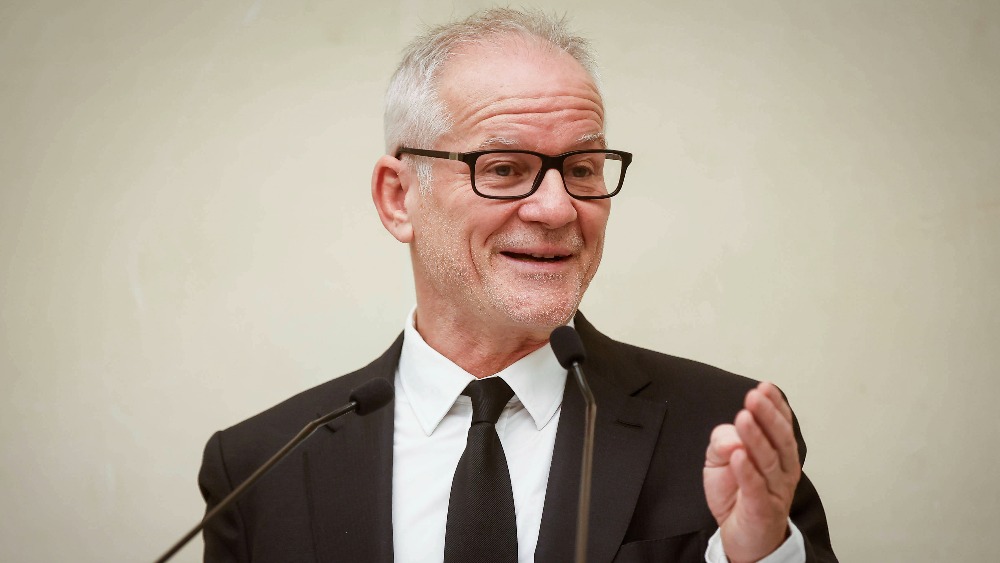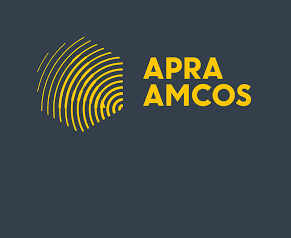With just a week to go before Cannes’ Official Selection is unveiled, festival director Thierry Fremaux took a break from binge-watching movies to tell Variety about the preparations for this year’s milestone edition.
Although the festival has already confirmed the world premieres of “Top Gun: Maverick” and “Elvis,” a surprisingly small number of titles have leaked so far, and the name of the jury president, as well as the opening night movie, have yet to be revealed. Besides addressing the potential presence of Russian filmmakers and COVID protocols, Fremaux said this year’s lineup will see a stronger showcase of female directors and movies from less-represented countries.
Fremaux also revealed special plans for the celebration of Cannes’ 75th anniversary on May 24 and how partnerships with TikTok and Brut will impact the festival going forward. Along with “Top Gun: Maverick” and “Elvis,” other high-profile pics rumored to be in the pipeline include George Miller’s “Three Thousand Years of Longing” and Hirokazu Kore-eda’s “Broker.”
What’s your routine looking like these days? How many movies do you still have to watch?
My routine is: Watching movies, watching movies and watching movies. It’s one of the greatest moments of the year. We talk to producers, sales agents and distributors. We still have a lot to watch because some films arrived very late, especially those from world-famous auteurs, which we have been waiting on. But everything is on track for the announcement of the Official Selection on April 14.
I heard a lot of films have been submitted in the last 10 days. Last year’s competition was huge. Do you think you’re headed for a 2022 lineup that’s of a similar size?
In early March, we thought we’d get fewer films because of the pandemic, and suddenly everything accelerated. As of today, we think we’ll surpass the usual number of films submitted. Without a doubt, we’ll have received more than 2,000 feature films. And since digital technology allows filmmakers to work up until the very last minute, many films have just been finalized. As far as the competition, we might still end up with a lineup of around 20 films. I can’t say more for now.
How would you describe the selection at this point in time? Do you see traces of the pandemic in the movies that were submitted?
The pandemic hasn’t at all become a topic in films. As in our lives, it’s there in some movies but without being at the heart of the stories being told. For several years, movies have reflected a vibrant artistic health and Cannes is a witness, such as with “Drive My Car” by Ryūsuke Hamaguchi. Before the pandemic, 2019 was a formidable year that brought together emerging auteurs and masters. And it led to huge theatrical numbers. You know, the triumph of “Parasite” was also the triumph of a great country for cinema: South Korea. The emergence of Im Kwon-taek, Park Chan-wook and Hong Sang-soo at the beginning of the 2000s — which Cannes turned a spotlight on — provided Bong Joon-ho with fertile ground to rise. 2021 was another great year. The concern is not about creativity.
What are you concerned about right now?
We don’t come out of a two-year crisis in a few weeks. So let’s wait before panicking … but everything is changing. Today, the way we watch films has considerably evolved and it’s affecting our film culture. In many countries, theatrical admissions are down and a segment of audiences are staying home. Movie temples are disappearing. France, which remains a privileged nation in terms of moviegoing, is also seeing a drop in admissions. But I remain optimistic: Cannes will place cinema in the hearts of everyone and, beginning in June, with “Top Gun: Maverick” and “Elvis,” we’ll see great American films hitting the screens.
New sections were launched last year, for instance the Cannes Premiere and the Cinema for the Climate strands. Will these initiatives be maintained in 2022?
Absolutely. For its first edition in 2021, Cannes Premiere boasted big names: Oliver Stone, Arnaud Desplechin, Hong Sang-soo, Andrea Arnold, among others. A festival has many different layers and dimensions. Cannes isn’t just about the competition, and we must discover hidden treasures. We must be able to show films from famed auteurs even when they didn’t make their films with the competition in mind. Cannes Première was created in this spirit and it was a success.
What about the Cinema for the Climate strand?
In 2021, we wanted to provoke an awakening by dedicating a mini-section to environmental questions and announcing measures to adapt the festival to contemporary concerns. This year, there won’t be a dedicated section but some initiatives will be organized.
Last year’s Un Certain Regard was focused on younger filmmakers — will that be the case in 2022?
Yes, last year we focused Un Certain Regard on younger filmmakers. It’s this strand’s primary mission. There will be less films in 2022. At least, that’s my hope. The curse of the programmer is bulimia! But the obsession of the organizer is frugality. In 2021, we made a conscious effort to invite a larger number of films. The crisis demanded it: We had to open up, be generous. This year, we’ll revert back to a normal size.
We already know that several highly anticipated U.S. films, including “Top Gun: Maverick,” will have their world premieres at the festival. How prominent will the U.S. studios be in this year’s lineup?
Studios have always be present at Cannes and I read — in Variety — an excellent article saying that Cannes was the most feted festival at the Oscars. And it’s true! Since we’re celebrating the 75th edition, we’ll say again that in 1939 as in 1946, Cannes was nearly co-founded by France and the U.S. The presence of studios is first and foremost about friendship and loyalty. And about a continued collaboration. The studio teams are wonderful with us. I love traveling to Los Angeles. In 2019, it was Sony-Columbia and Universal, and it will be Warner Bros. and Paramount this year. The screening of “Top Gun: Maverick” will be a great event with Tom Cruise in attendance. Cannes wants to celebrate this man of cinema, who lures the biggest filmmakers, like Christopher McQuarrie or Joseph Kosinski. Tom Cruise has shown these past years a consistency in terms of quality, which is astonishing.
What about U.S. independent movies? Will they also be well represented this year?
I hope so. We now have the habit of working hand in hand with A24, Neon and FilmNation, among others in the U.S., who are pushing for a [vision] in cinema that is auteur-driven, very cultural and very political.
Are you willing to invite Russian filmmakers into competition?
We have issued a statement which clearly expresses, as a priority, our support to Ukraine and its people, and our refusal to welcome any official Russian presence that may be tied to some extent to crimes committed through this war of aggression and invasion. As of now, we have not yet seen any Russian films that are likely to play in the Official Selection. But, while we’re not forgetting the people of Ukraine who are suffering under Russian bombs, we must also remember that artists are trying to make their voices heard in Moscow and that they are doing so with great courage. It’s an extremely delicate subject.
How do you think the arrival of Iris Knobloch as the new president will impact the Cannes Film Festival starting in 2023?
Iris Knobloch will begin her mandate on July 1. Her arrival will obviously impact the festival, as did Pierre Lescure’s eight years ago. We’ve very happy to welcome her within our team, she’ll bring something different. She’s impatient and we are as well! We will face the future with her, and her way of being humble and dynamic.
I’ve read that Iris could revise Cannes’ rule, which makes it impossible for movies from streamers to compete unless they have a French theatrical release. Could streamers return in competition at Cannes under her presidency?
We have not yet discussed this. During the latest board meeting, Pierre Lescure brought up this discussion about having films by streaming services play in competition and I’m grateful to him because I’m favorable to this change. But the board said, under the influence of exhibitors, that it wasn’t preferable. We respect this decision. But we must be careful because the revolution of [the screen] is here and here to stay.
This year’s edition will mark the 75th anniversary of the Cannes Film Festival. What does it mean for the festival?
Every year, the festival is a collective celebration of cinema for the world, the industry and the artists. And every five years, there are milestone editions, as with birthdays. Personally, I never celebrate my birthday. But 75 editions of Cannes Film Festival, that’s a big milestone! And this anniversary will unfold in particular circumstances: the pandemic, the war in Ukraine, and a world that has changed and will change again. It will be a beautiful celebration for creativity and artists, for the industry and for society at large which has suffered so much. There is also a desire to help contemporary cinema. I just read [an article] by the journalist Jean-Michel Frodon that will be published in May: It revisits 40 years of the festival, the trends, movements and auteurs. Looking at the past also gives us the opportunity to look at the future. In 2022, it won’t just be about celebrating the festival itself, but also about preparing the future of the festival so that it can pursue its mission.
How do you plan to celebrate this important edition after the long crisis we’ve just gone through?
The important things are cinema today and tomorrow, and cinema in theaters. The Official Selection will reflect what will never change: The art of cinema. We’ll have feature debuts, films from countries that have rarely been represented and a stronger presence of female directors. The international aim of Cannes is crucial. We’ll have a celebration on May 24. Many guests will be there. A big dinner, a big party, in an unusual place. There will also be a symposium, and we’ll invite numerous filmmakers to think about the future. The question today is, what does it mean to be a filmmaker in 2022? Twenty years ago, the answer was easy: It was directing a film in 35 mm for movie theaters. But today, what does it mean to tell stories with moving images, make movies, address audiences? How to produce and how to distribute? It will be captivating. In 1992, Wim Wenders explored these themes with his camera and delivered a medium-length film called “Room 666.” He asked a simple question: “What is the future of cinema?” A young filmmaker asked us if we could follow the same device and we’ll try to help her with this endeavor.
With new partners such as Brut and TikTok, it seems the festival is also looking to attract young audiences and becoming an event that’s more accessible to a larger audience. Why did you want to change your positioning and how can you still remain true to your DNA?
The DNA of Cannes is to adapt itself. The partners we attached this year are tuned in to the evolution of media. It’s a natural step. The partnership with France Televisions will also allow the festival to be largely visible in our country. It’s a public broadcaster that co-produces many films and also supports cinema through the shows it hosts. Brut, meanwhile, is a new media company with an unmatchable success and skews to a younger audience. As far as TikTok, we were talking about it for a while and we’re happy to have this partnership in place for 2022 because it corresponds to today’s world. It’s not about making the festival “younger,” it’s about welcoming young people while caring for “our” elders. We have been introducing numerous initiatives along those lines for many years, for instance the Palme d’or for the short film, the competition of film schools, the Short Film Corner at the Marché du Film, and the residence program in Paris, as well as the 3 Days in Cannes program.
The festival will be the last edition for Pierre Lescure and Jerome Paillard, who’s been running the Marché du Film for decades! Big changes ahead…
Yes. It will also be the last edition of Georges Goldenstern at the Cinéfondation, whose structure and missions will evolve. I’d like to pay tribute to both Jerome Paillard and Georges Goldenstern, who are two wonderful professionals — their roles were immense, we will miss them dearly. And it will also be the last Cannes Film Festival of Pierre Lescure as president. We also want to celebrate him! But we’ll talk about that another time.
With the number of COVID cases on the rise again, what kind of health protocol will you enforce?
Let’s remember that in 2021, the Cannes Film Festival put in place all the necessary measures to guarantee the safety of participants: In fact, fewer than 100 COVID cases were detected. The Palais des Festivals is a reference in terms of health safety and Cannes City Hall has been cautious. In May, a protocol will be adapted for the 2022 edition and will follow the recommendations of authorities so that, like last year, the celebration can be entirely fulfilled.
What are you most proud of when it comes to Cannes?
Discovering new auteurs to whom we’re faithful and who know that Cannes is their home, but also having the international ambition to salute cinema wherever it’s coming from. I’m used to saying that Cannes isn’t a French festival but a festival in France where the world gathers during two weeks. Showing films by the young Ryusuke Hamaguchi or the young Joachim Trier, who won prizes at Cannes and then went on to have wonderful international careers, is a source of great satisfaction. To have selected in competition “Distance” by Hirokazu Kore-eda and then seeing him win the Palme d’Or is another. As well as remaining faithful to Nanni Moretti, Ken Loach, Pedro Almodovar or Baz Luhrmann. But we’re not alone: There are many festivals around the world that do extraordinary work when it comes to curation.
From Variety US



































